
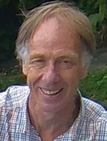
Angus Atkinson
Plymouth Marine Laboratory, UK
Talk: TBA
Angus Atkinson joined Plymouth Marine Laboratory in 2012 from his previous employment at the British Antarctic Survey (BAS). He is interested in all aspects of marine ecology and biogeochemistry, but with main focal areas on plankton and krill species, and particularly in polar regions and in the northeast Atlantic. Topics of particular interest include plankton size structure (biomass spectra); Euphausia superba (Antarctic krill); copepods; feeding ecology and energy budgets; Antarctic, Arctic and north Atlantic food webs; iron cycling by zooplankton; climate warming responses including shifts in phenology, distributional range and body size; responses to climatic extremes and the roles of zooplankton in the biological carbon pump.
To achieve these research objectives, Angus has had a long-standing interest in generating long time series which give clues into how real-world zooplankton assemblages have already responded, over multiple decadal timescales, to rapid climate change. To do this he started work at BAS in the 1990s to compile old historical krill records into a central database now called KRILLBASE. Currently he is working increasingly on how plankton in the NE Atlantic are coping with climate change but continues Southern Ocean interests by expanding KRILLBASE and making these databases more easily accessible.
Roles of gelatinous zooplankton in ecosystems: Production, population dynamics, trophic interactions and biogeochemical cycling
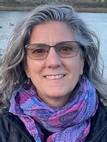
Mary Beth Decker
Department of Ecology & Evolutionary Biology, Yale University, New Haven, USA
Mary Beth Decker is a Research Scientist in the Department of Ecology and Evolutionary Biology at Yale University. She studies the influences of oceanographic processes and conditions on the distribution, abundance and behavior of jellyfish and their prey and how these processes affect trophic structure of marine ecosystems. She uses a multi-scale, interdisciplinary approach to investigate these processes by employing shipboard expeditions, modeling and retrospective examinations of long-term data sets. She is particularly interested in the influence of climate on the production and distribution of gelatinous zooplankton, as well as the effects that jellyfish blooms have on pelagic food webs. She conducts her research in the North Pacific and North Atlantic Oceans.

Fabien Lombard
Laboratoire d’Océanographie de Villefranche, Sorbonne Université, Villefranche-sur-Mer, France
Fabien Lombard is an associate professor at Sorbonne University in the Laboratoire of Oceanography in Villefranche sur Mer. He obtained his doctorate from the University of Pierre et Marie Curie (Paris 6) in 2006 focussing on both the experimental study and the modelling of appendicularians (gelatinous filter feeders. His research focuses on the link between plankton ecology, physiology, functional diversity and their impact on matter fluxes. He is deeply involved in monitoring plankton abundance and taxonomic, functional, trophic and traits composition at large scale by using automatic imaging machines and the help of automatic image recognition. He participated in major sampling efforts including several Tara expeditions and helped in the development of many imaging devices (Planktoscope, UVP-6) now deployed at large scale.
Interactions between zooplankton and pollution in a changing ocean
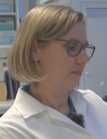
Claudia Halsband
Akvaplan-Niva, Norway
Claudia Halsband studies anthropogenic impacts of climatic warming, ocean acidification, and microplastics pollution on marine ecosystem structure and function, with a recent focus on the combined effects of multiple stressors on arctic ecosystems. She is the Head of the Section Ecosystems at the private research institute and consultancy Akvaplan-niva with headquarters in Tromsø, Norway, and a member of the steering committee of the Fram Centre program CLEAN (Cumulative impact of multiple stressors in High North ecosystems). Her recent research had a focus on interactions of marine organisms with microplastics and their additives, and car tire particles in particular. Car tire particles are a major contributor to microplastic pollution worldwide, and contain a range of leachable chemicals, some of which are toxic to zooplankton at low concentrations. In addition, other pollutants, combined with elevated temperatures and ocean acidification, add cocktail effects and multi-stress scenarios. In CLEAN, Claudia and colleagues study the expected responses and resilience of zooplankton and other functional groups to relevant stressor combinations in Nordic marine systems. Claudia holds a joint European PhD from the Universities of Paris (France) and Oldenburg (Germany), and is a former EU Marie-Curie postdoctoral fellow, with research experience from posts in Germany, France, USA, UK, and Norway.
The role of zooplankton in the Biological Carbon Pump
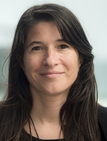
Moira Decima
University of California, San Diego, USA
Dr. Moira Décima is an Assistant Professor at the Scripps Institution of Oceanography and the Curator of the Pelagic Invertebrate Collection. Dr. Décima combines field work on global class vessels, samples from Collections, and experimental manipulations, to answer fundamental questions related to plankton food-web structure and function, species distributions and diversity, and the role of zooplankton in biogeochemical cycling - all within a broader context of ecosystem response to climate change. Her earlier research foci include using compound-specific isotope analysis of amino acids (CSIA-AA) to assess the importance of the microzooplankton-mesozooplankton link to the broader pelagic food web, and quantifying energy transfer through both auto- and hetero- trophic pathways. More recently, she has focused her attention on gelatinous zooplankton, specifically salps and pyrosomes, which affect trophic interactions and biogeochemistry in fundamentally different ways than their crustacean counterparts, and might be shifting their distributions in response to climate change. In addition to investigating the role of salps in marine ecosystems, her lab is currently investigating the effect of ocean acidification and hypoxia on thecosome pteropods, the impact of wildfires on marine pelagic communities, applying DNA metabarcoding to investigate zooplankton community structure, and the impact of pyrosomes on the California Current Ecosystem (CCE). Her current sea-going program is conducted within the CCE Long Term Ecological Research Program (CCE-LTER).
Shedding new light on zooplankton: Unveiling communities, ecology, and evolution through integrated approaches
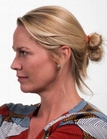
Katja Peijnenburg
Naturalis Biodiversity Center
Institute for Biodiversity and Ecosystem Dynamics, University of Amsterdam, Netherlands
Katja Peijnenburg has developed a unique research line at the interface of ocean science and evolutionary biology: applying cutting-edge morphological and molecular tools to study zooplankton- some of the most abundant organisms on our planet, sensitive to climate change, and with crucial roles in the Earth's biogeochemistry. A central question is "how do zooplankton evolve and adapt to the changing ocean?". She currently holds a group leader position at Naturalis Biodiversity Center, which houses the natural history collection of the Netherlands, and she is an Associate Professor at the University of Amsterdam where she teaches and coordinates the MSc course "Biological Oceanography".
More...
Applications of time series to track changes in zooplankton communities and impacts on ecosystem structure and function
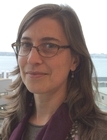
Catherine Johnson
Fisheries and Oceans Canada Bedford Institute of Oceanography, Dartmouth, NS, Canada
Dr. Catherine L. Johnson is a Research Scientist for Fisheries and Oceans Canada, based at the Bedford Institute of Oceanography in Dartmouth, NS, Canada. Her research focuses on biological and physical factors that control zooplankton distribution, abundance, community composition, and diversity, including the effects of climate variability on plankton populations and communities, interactions between zooplankton behavior and transport, and the role of dormancy in copepod life cycles. In recent years, she has led a multidisciplinary research team focusing on processes driving the dynamics of copepods as prey for the endangered North Atlantic right whale in the northwest Atlantic shelf system. She is part of the leadership team of the Atlantic Zone Monitoring Program (AZMP), an ocean observing program coordinated across the four Atlantic Fisheries and Oceans regions. She is a member of the ICES Working Group on Zooplankton Ecology, co-leading the group’s analysis of zooplankton community changes across the North Atlantic, and she was previously co-chair of the ICES Working Group on the Northwest Atlantic Regional Sea. She earned her Ph.D. in Biological Oceanography from the University of California, San Diego.

Lavenia Ratnarajah
Institute for Marine and Antarctic Studies (IMAS), Hobart, Tasmania, Australia
I am interested in understanding how organisms interact with each other and with their surrounding environment at present and how this will change in the future. Since 2007 I have had the privilege of working in research organisations in Australia, Malaysia, Ecuador, France, the US and UK whilst undertaking fieldwork in streams and rivers within tropical and temperate forests in Asia, Australia, North and South America, and in the icy continent of the south - Antarctica.
I am currently a Research Associate in carbon biogeochemistry at the Australian Antarctic Programme Partnership at the University of Tasmania, Australia.
More... to find out what I have done, am currently doing, and super interested in doing in the future!
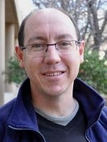
Anthony Richardson
Commonwealth Scientific and Industrial Research Organization (CSIRO), Australia
Anthony Richardson has a joint position between the University of Queensland and CSIRO Environment in Brisbane, Australia. He is a mathematical ecologist with interests in plankton ecology and modelling, climate change ecology, and the design of marine protected areas. Anthony’s primary interests in plankton ecology are in understanding long-term changes and drivers of plankton communities, including the role of gelatinous zooplankton, and what this means for higher trophic levels, fisheries, and carbon sequestration. Anthony leads the Australian Continuous Plankton Recorder Survey, which for the past 15 years has monitored the lower trophic levels in Australia’s oceans.
The role of microzooplankton in biogeochemical cycling and food webs
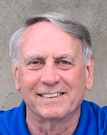
Michael Landry
Scripps Institution of Oceanography, UC San Diego, USA
Michael Landry received his Ph.D. in Oceanography from the University of Washington. He has held faculty positions at the University of Washington, University of Hawai’i and Scripps Institution of Oceanography and is currently Distinguished Professor of the Graduate Division at University of California, San Diego. Mike began his career as a traditional zooplankton ecologist studying copepod population dynamics and omnivorous/carnivorous feeders, from which he adapted population approaches to investigate growth and mortality of marine microbes. As a field ecologist, he has especially enjoyed exploring diverse ecosystems with colleagues and students in over 50 years of shipboard studies. Mike’s research takes a system-level approach to plankton community ecology, food web interactions and comparative ecosystem analyses, involving the integration of many methods to constrain and understand process rates and relationships connecting phytoplankton, bacteria, microzooplankton, mesozooplankton and larval fishes to one another and to physical drivers and biogeochemical cycling. He is a Fellow of the American Association for the Advancement of Science (AAAS) and Association for the Sciences of Limnology and Oceanography (ASLO) and a member of American Geophysical Union (AGU), The Oceanography Society (TOS), and World Association of Copepodologists (WAC). He serves on the Steering Committee for SIBER and U.S. Organizing Committee for IIOE-2 advancing biogeochemical and ecological research in the Indian Ocean.
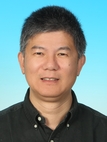
Hongbin Liu
Hong Kong University of Science and Technology, Hong Kong
Dr. Hongbin Liu is a biological oceanographer with more than 30 years of experience studying the plankton food web dynamics and its role in carbon and nutrient cycles in various marine ecosystems. He obtained his PhD in Oceanography from University of Hawaii in 1997, joined the Hong Kong University of Science and Technology in 2005, and was conferred the Chair Professor title in 2021. His current research interests cover broad spectra in marine science, including microbial diversity and metabolic functions, planktonic food web dynamics and carbon and nutrients cycling, global change biology, and environmental stress in estuarine and coastal ecosystems.
Over the last three decades, Dr. Liu has led more than a dozen research projects and published more than 260 papers in SCI journals. He serves as editor or editorial board member for a number of international journals and the guest editor for six special volumes in the field of marine sciences. He is a member of the American Geophysical Union (AGU), American Society of Microbiology (ASM), Association for the Sciences of Limnology and Oceanography (ASLO), and was elected ASLO Fellow in 2019. He served as the Chair of the Gordon Research Conference – Marine Molecular Ecology in 2015. He also serves in various panels of Hong Kong SAR government.

Luciana Santoferrara
Department of Biology, Hofstra University, Hempstead, NY, USA
Dr. Santoferrara’s expertise is in eukaryotic microbiology. Research in her lab focuses on the biodiversity of ciliated protists in marine plankton, and how these and other microbes are affected by environmental changes. Current research lines include: 1) genetic, morphological and functional signatures of ciliate diversity via integrated microscope, culture and -omics approaches, and 2) interactions among eukaryotic and prokaryotic plankton communities under coastal hypoxia.
She is a Scientific Committee Member for the PR2 Databases and a member of the MixONET SCOR Working Group on mixoplankton. She is an associate editor for the journal Genome Biology and Evolution, and an active member of the International Society of Protistologists (ISOP). Her teaching interests focus on Microbiology, Microbial Ecology and Bioinformatics for both undergraduate and graduate students, and she is a certified instructor with The Carpentries. Previously, Dr. Santoferrara was an assistant professor and a postdoctoral scholar at the University of Connecticut, USA. She obtained a Ph.D. in Biological Sciences (Microbial Ecology) and a degree in Biochemistry (Microbiology focus) at the University of Buenos Aires, Argentina.
Get it from the image: In situ imaging and spatially detailed observations of zooplankton for ecosystem studies
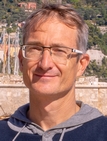
Lars Stemmann Sorbonne Université, France
Pr. Lars Stemmann is a biological oceanographer at the Laboratory of Villefranche sur Mer from Sorbonne University. He obtained his PhD in Oceanography from Sorbonne University (formely Université Pierre et Marie Curie) in 1998, joined the particle modeling group of George Jackson at Texas A&M, was hired as assistant Professor of Sorbonne University in 2003 and obtained the Chair Professor title in 2013. In the last three decades, his research interests have been evolving from zooplankton long term changes using time series approach, particle dynamics using observation with cameras and modeling to plankton impact on the strength of the Biological Gravity Pump from local to global scales.
His teaching takes place at Sorbonne University both at undergrade and master levels. He is co-leading the IMBRSEA Erasmus Mundus master that gathers 12 europeans partners universities and more than 100 students from 35 nationalities each year. His current research interests focuses on planktonic food web dynamics, carbon flux attenuation in the mesopelagic, and global plankton diversity. He has been leading projects that succeded to develope in situ imaging sensors, such as the Underwater Vision Profilers, and their use for a global distributed research and observation network of zooplankton and marine particles. Over the last three decades, Pr. Lars Stemmann has led/participated to many research national and international projects and published more than 100 papers.
Impacts of zooplankton production and trophic interactions on fisheries recruitment in the ocean
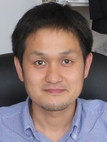
Gen Kume Kagoshima University, Japan
Gen Kume received his PhD at Department of Aquatic Science, the University of Tokyo, Japan, where he graduated in 2002. He is currently Associate Professor at Faculty of Fisheries, Kagoshima University, Japan. Kume’s research interests are in life history of marine and freshwater fish, focusing on larval ecology, such as their predator-prey relationships, in the upwelling system in the Satsunan area, southern Japan in the past decade.
Zooplankton in changing polar oceans

Geraint A. Tarling British Antarctic Survey, UK
Professor Geraint Tarling has studied zooplankton in polar regions for over 25 years, and has worked in both the Arctic and Southern Oceans. His research career started with a PhD studying the biogeography of zooplankton communities in the south-west Atlantic Ocean. He moved into more ecophysiological research during a post-doctoral position at the Scottish Association for Marine Science, where he focused on Northern krill. He followed this with work on krill vertical migration and reproductive behavior as part of a Natural Environment Research Council fellowship. In his present position at the British Antarctic Survey (BAS), he is considering wider aspects of biological oceanography including ocean acidification, krill swarming and the Biological Carbon Pump. Geraint co-led the DIAPOD programme considering Calanus-complex population dynamics in the Fram Strait and Barents Sea and their contribution to the lipid pump. He is presently the Science Leader for the Ecosystem programme at BAS and the Principal Investigator for the multi-institute BIOPOLE programme determining how polar ecosystems regulate the balance of carbon and nutrients that drives global ocean productivity.
Advancements in zooplankton censusing and monitoring technologies
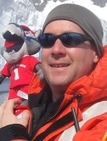
Joseph Warren Stony Brook University, NY, USA
Joseph D. Warren is a professor in the School of Marine and Atmospheric Sciences at Stony Brook University. His research focuses on the use of acoustics to answer ecological questions. Active acoustic methods can measure the distribution and abundance of nekton and zooplankton in marine and freshwater systems to better understand the bottom-up and top-down processes that affect these organisms. In addition to field surveys, his research interests include: improving the accuracy of acoustic scattering models; use of passive acoustics to study fish, mammal, and invertebrate ecology; and predator-prey (fish/zooplankton and marine mammals/seabirds/pinniped) dynamics. He has conducted acoustic surveys from vessels ranging from rowboats to 300' ice-breakers and led research projects throughout the world studying a wide range of ecosystems including: Antarctica, Bering Sea, Gulf of Alaska, Gulfo de Corcovado Chile, Philippines, New York coastal waters, Gulf of Maine, Sierra Nevada mountain lakes, coral reefs, coastal estuaries, and the pelagic ocean. He has spent over 1000 days conducting research at sea with more than 350 days working in the Western Antarctic Peninsula.
Dynamics and role of diapausing copepods in marine ecosystems
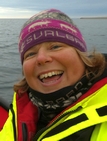
Malin Daase UiT The Arctic University of Norway, Norway
Malin Daase is a marine ecologist at UiT The Arctic University of Norway and holds an adjunct position at the University Centre in Svalbard. She has conducted research on pelagic and ice associated ecosystems in the Arctic for over 20 years. Her main research interest is in seasonal and long term variability of Arctic zooplankton communities and the factors that cause these variability. Current research questions examine organismal adaptations during the unproductive seasons (winter), and species vulnerability to broad environmental changes such as sea ice loss and climate warming. She is particularly interested in how organisms have adapted to the extreme seasonality in high latitudes and a focus throughout her research career has been on the population dynamics, physiology, life history strategies and annual routines of key species in Arctic waters - copepods of the genus Calanus. Since 2012, she has participated in annual polar night campaigns studying zooplankton population dynamics, mortality, and life history traits as well as the impact of natural and artificial light on pelagic communities during the polar night to improve our understanding of ecosystem processes outside the main productive period. Another research focus is in maintaining and analysing long-term time series to observe change and validate the underlying processes such as ecosystem-level responses to environmental repercussions. Malin has extensive experience conducting research in the open and ice-covered seas and fjord systems of the European Arctic, the coastal and fjord waters in/around Svalbard, sub-Arctic seas (Norwegian Sea) and the Canadian Arctic (Northern Baffin Bay), working with both traditional sampling methods as well as autonomous platforms such as stationary oceanic moorings and platforms that drift with sea ice, as well as experimental.
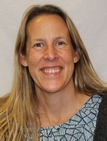
Ann Tarrant Woods Hole Oceanographic Institution (WHOI), USA
Ann Tarrant is an invertebrate physiologist at Woods Hole Oceanographic Institution (WHOI). Her lab uses molecular, physiological, and behavioral approaches to study how invertebrate animals detect and respond to signals and stressors in their environment. She completed a B.S. in Marine Science and Biology at the University of Miami (1995) and M.S. (1998) and Ph.D. (2002) degrees in Biological Oceanography at the University of Hawaii. She first came to WHOI in 2002 as a postdoctoral scholar and continued as a postdoctoral fellow sponsored by a National Research Service Award (NRSA) from the National Institutes of Health (NIH). She was appointed to the Scientific Staff in the WHOI Biology Department in 2007, and she is currently a Senior Scientist and the Associate Dean of Academic Programs. A major focus of her work has been in toward understanding how copepods respond to seasonal changes, accumulate lipids, and use dormancy as a survival strategy. A second focus has been in understanding how animals use internal circadian clocks and cyclic environmental cues to regulate their physiology and behavior. She has served on editorial boards for several journals and edited several guest issues, including “Ecology and Physiology of Dormancy in a Changing World” (Biol. Bull. 237(2)). She is also an avid distance runner.
The role of zooplankton (including Antarctic krill) in Southern Ocean ecosystems in a changing world: Integrating across scales, disciplines, and methods
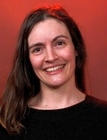
Kim S. Bernard College of Earth, Ocean, and Atmospheric Sciences, Oregon State University, OR, USA
Dr. Kim Bernard is an Associate Professor of Ocean Ecology and Biogeochemistry in the College of Earth, Ocean, and Atmospheric Sciences at Oregon State University. Since obtaining her PhD from Rhodes University, South Africa in 2007, she has led and/or been a major collaborator on research in a broad range of marine ecosystems, including the Antarctic Peninsula, Humboldt Current, Northern California Current, Eastern Bering Sea, and off the coasts of New Zealand and South Africa. Dr. Bernard’s research relies heavily on quantitative data collected during long field campaigns spent at sea or remote field stations where she has spent a total of 67 weeks at sea and 39 months at Palmer Station, Antarctica. Central to Dr. Bernard’s work is a desire to understand the effects of climate change and other anthropogenic disturbances on zooplankton ecology with implications for the structure, function, and services of marine ecosystems. Her research has made significant contributions towards (i) understanding global trends in the response of zooplankton to marine heat waves and other warming events enabling improved projections of species range shifts and changes to diversity and ecosystem function, (ii) resolving the physical drivers of zooplankton patchiness and dispersal allowing for improved predictions of biological hotspots and connectivity between spawning and recruitment grounds, which can be used to develop marine protected areas, and (iii) identifying the strategies that polar zooplankton (with a focus on Antarctic krill) use to survive extreme environmental conditions.
Recent advances in global euphausiid ecology
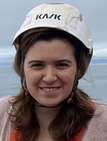
Teresa Sofia Giesta da Silva Marine and Freshwater Research Institute of Iceland, Iceland
Teresa Silva is a marine biologist at the Marine and Freshwater Research Institute in Iceland. Teresa graduated from the Polytechnic Institute of Leiria, Portugal, in marine biology and biotechnology with a BSc in 2005 and a BSc (Hons) in 2006. She received her PhD at the University of Iceland in 2018 on the Ecology of Krill in Icelandic waters. Currently, she is working on using acoustics to study the macrozooplankton and micronekton within the mesopelagic zone part of European project Meeso, and other research projects on capelin and krill. Her research interests focus on climate change, the match and mismatch hypothesis, and studying prey and predator spatial interactions.
Improving zooplankton representation in models

Wendy Gentleman Department of Engineering Mathematics and Internetworking, Department of Oceanography, Dalhousie University, NS, Canada
Dr. Wendy C. Gentleman is an Associate Professor in Engineering Mathematics, with a cross-appointment in Oceanography, at Dalhousie University in Halifax, NS, Canada.
Her research interests relate to marine zooplankton population dynamics, life history, and ecological roles in the context of changing environments and human activities. Most recently she has been investigating larval connectivity of commercial, invasive and threatened marine species, as well as zooplankton-mediated contributions to the biological pump of organic carbon from the sea surface to the ocean's interior.
Her expertise lies in the development and application of mathematical models that couple physics and biology. This includes characterizations of vital rates (grazing, development and mortality), simulating transport, and quantifying model uncertainty. She uses different approaches such as individual-based population models, particle-tracking models, nutrient-phytoplankton-zooplankton-detritus models and plankton functional type ecosystem models. She has also branched into the application of network theory to map the spatial distribution of connected subpopulations. She thoroughly enjoys working with biologists and ecologists, and using models to inform future experiments and observational studies. She is passionate about training the next generation of ecosystem modelers: mentoring students, teaching courses and running workshops that bring together people of diverse backgrounds to learn the art and science of modeling.
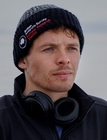
Tyler Rohr Institute of Marine and Antarctic Studies, UTAS, Australia
Tyler Rohr is ARC DECRA Fellow and Lecturer in biogeochemical modelling at Institute for Marine and Antarctic Studies at the University of Tasmania. After earning a BSE in Environmental Engineering at Duke University and PhD from the MIT/WHOI Joint Program, he worked as Knauss Marine Policy Fellow for the U.S. Department of Energy. Now, back in academia, Tyler’s work spans marine biogeochemistry, physical oceanography, Earth System Modelling, and policy to unravel the connections between the ocean and our climate, and ultimately how society might wish to grapple with, or even manipulate, these powerful feedbacks.
Reference sequence databases for global zooplankton biodiversity: Optimization, applications and user guidelines
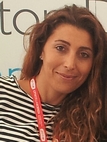
Iole Di Capua Stazione Zoologica Anton Dohrn, Italy
Dr. Iole Di Capua is a technologist at the Marine Organism Taxonomy Core Facility (MOTAx) within the Research Infrastructures for Marine Biological Resources Department at Stazione Zoologica Anton Dohrn in Naples, Italy. Her research expertise lies in alpha- and molecular taxonomy of zooplanktonic organisms, with a focus on copepods. She is extensively involved in investigating zooplankton biodiversity and ecology, employing cutting-edge approaches such as barcoding and metabarcoding. Her research spans various geographic areas, with a primary emphasis on the Long Term Ecological Research site MareChiara (LTER, EU-IT 061), where she is responsible of zooplankton datasets, including biomass and abundance data, and reference library of COI for zooplankton species, with HD-images and voucher specimens of the species sequenced. In addition, Dr. Di Capua plays a pivotal role in the Naples Ecological Research and Augmented ocean observation (NEREA) project, where she leads zooplankton metabarcoding activities. She is recognized for her contributions as the WoRMs Editor for Copepoda and the author of several significant checklists. Dr. Di Capua is a member of Executive Council of the World Association Copepodologist (WAC) and a valued partner of MetaZooGene SCOR WG157. She also assumes responsibilities for ICES Working Groups Integrated Marine Taxonomy (WGIMT) and Towards a European Observatory of the non-indigenous calanoid copepod Pseudodiaptomus marinUS (EUROBUS).
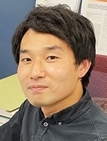
Junya Hirai Atmosphere and Ocean Research Institute, The University of Tokyo, Kashiwa, Japan
Junya Hirai is an assistant professor at the Atmosphere and Ocean Research Institute, The University of Tokyo. He obtained his BSc from the University of Tokyo and MSc from University of Southampton. He completed his PhD in 2014 at Atmosphere and Ocean Research Institute, The University of Tokyo. Subsequently, he did his postdoctoral research at the Japan Fisheries Research and Education Agency for three years. Junya’s work aims to uncover zooplankton diversity in the global oceans, and a major part of his research is on large-scale genetic and species diversity of zooplankton using cutting-edge molecular techniques. He is also interested in revealing prey-predator relationships of zooplankton in marine food webs using his molecular techniques. He is a member of the Scientific Committee on Oceanic Research working group #157 MetaZooGene, collaborating globally with other zooplankton molecular ecologists.
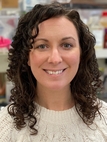
Jennifer Questel College of Fisheries and Ocean Sciences, University of Alaska Fairbanks, Fairbanks AK, USA
Dr. Questel holds a Research Assistant Professor position at the College of Fisheries and Ocean Sciences, University of Alaska Fairbanks (CFOS, UAF). She is a Biological Oceanographer who specialized in zooplankton and molecular ecology of polar and subpolar ecosystems. Her research takes her from the Arctic Ocean, to breathtaking mountainscapes and tidewater glaciers in coastal fjord systems in Southeast Alaska, to seamounts and the abyssopelagic zone in the Gulf of Alaska. Questel uses a suite of molecular techniques (e.g., DNA barcoding, population genetics, phylogeography, metabarcoding) to better understand the structure and biodiversity within zooplankton communities. One of her major career research objectives is to increase species representation in reference DNA sequence databases and has been making considerable progress in DNA barcoding deep-water zooplankton from all taxonomic groups. Questel is often a visiting scientist at the Smithsonian Institution National Museum of Natural History (Washington, DC) where she carries out much of this work. Questel received her B.S in Zoology from the State University of New York at Oswego (2008) and her Ph.D. in Oceanography from UAF (2016). Questel has held two postdoctoral appointments, the first at the University of Connecticut (Supervisor: Dr. Ann Bucklin) and the second at UAF (Supervisor: Dr. Russ Hopcroft).
Global plankton time series synthesis and comparisons
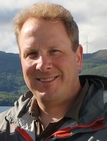
Todd O'Brien NOAA Fisheries, USA
Todd is a NOAA plankton and ecosystems researcher, a data scientist, and creator of the Coastal & Oceanic Plankton Ecology, Production, & Observation Database (COPEPOD and COPEPEDIA). As a data scientist, he enjoys creating online exploratory interfaces, data products and compilations, and integrations of different data types (e.g., in-situ, satellite, model) to support both personal and collaborative research needs.
Todd first started working heavily with plankton time series in 2004, as a member of the SCOR Global comparisons of zooplankton time series working group (WG125), and continued this time series work with the ICES Working Group on Zooplankton Ecology (WGZE), the ICES Working Group on Phytoplankton & Microbial Ecology (WGPME), and the IOC/UNESCO International Group for Marine Ecological Time Series (IGMETS). His other collaborative products include the SCOR WG157 MetaZooGene Atlas and Database (MZGdb), and the Pelagic Size Structure database (PSSdb).
Zooplankton morphological identification. Is it still necessary?
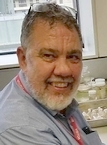
Tony Miskiewicz Ichthyology Department, Australian Museum Research Institute, Sydney, Australia
Dr. Tony Miskiewicz completed a PhD on larval fish ecology at the University of NSW, Australia in 1987. Now retired, he currently holds adjunct positions in the Fish Department at the Australian Museum and at the University of NSW. He has over 40 years’ experience in the identification and descriptions of development of fish larvae in temperate marine and coastal waters around southern Australia. Most recently, he has been responsible for identification of fish larvae caught at five National Reference Stations around Australia for IMOS larval fish sampling program from 2014 - 2021. He is a co-editor of Neira et al 1998 Larvae of Temperate Australian Fishes - Laboratory Guide for Larval Fish Identification. In recent years, I have been working with collaborators on the use of CO1 bar coding and metabarcoding for larval fish identification and how these techniques can be used to complement the classical techniques such as morphology, head spine patterns and pigmentation, that are traditionally used for larval fish identification.

Julian Uribe-Palomino
Commonwealth Scientific and Industrial Research Organization (CSIRO), Australia
I am a marine biologist with extensive experience identifying marine planktonic organisms (Zoo- and Phytoplankton) as part of my job, and also as a hobby. My early career started assessing the phytoplankton communities of the water column (0-50m) from the Tropical Equatorial waters of the Colombian Pacific Ocean. Through this research became involved in other projects investigating gelatinous zooplankton taxa (Chaetognaths and Siphonophores) from the same geographic area. Since moving to Australia, I have been involved in long term research projects such as the IMOS Continuous Plankton Recorder (Aus-CPR) survey and the National Reference Stations (Aus-NRS), which aim is to understand the structure and composition of the planktonic component of the Australian coastal marine waters. Taxonomy is at the centre of my personal research which has taken me to help in the description of a diatom’s symbiont, the description of two micro-medusa and currently I’m working in the description of a new species of marine copepod. Besides my taxonomic interests, I have had the chance of producing some work related to barcoding of some zooplankton specimens and a few copepods from the Monstilloida order. I also have started exploring the use of cutting-edge technology such as Micro CT scanning to produce 3D models of copepods and other micro-crustaceans as complementary techniques for integrated taxonomy purposes.
Approaches towards findable, accessible, interoperable and reusable (FAIR) zooplankton trait data as stepping stones to improved functional ecology

Jason Everett
(1) School of the Environment, The University of Queensland, St Lucia, Australia
(2) Centre for Marine Science and Innovation, University of New South Wales, Sydney, Australia
(3) CSIRO Environment, St Lucia, Australia
Dr Jason Everett is a biological oceanographer, with an interest in how oceanographic processes structure pelagic ecosystems (planktonic and fisheries) at regional and global scales. His work reveals how zooplankton processes regulate fisheries production, carbon export, and improve our ability to model and manage marine ecosystems.
Jason splits his time between the University of New South Wales and the Sydney Institute of Marine Science. Jason completed his PhD in 2008, before working for the NSW Office of Environment and Heritage. He is now a postdoctoral researcher in the Evolution and Ecology Research Centre at UNSW with Professors Iain Suthers and Tracey Rogers. He is the convenor of Zooplankton Ocean Observations and Modelling Task Team with the Integrated Marine Observing System (www.IMOS.org.au) serves on the Technical Advisory Committee of the Australian Ocean Data Network (AODN). He regularly collaborates with researchers from the University of Tasmania, the University of Queensland, the University of Technology, Sydney, the CSIRO, and the University of British Columbia, Canada.
His research has a number of key themes:
- Biological Oceanography: Understanding how oceanographic processes such as ocean currents, eddies (cyclones of the sea) and upwelling events drive changes in the biomass and species distribution of plankton, fish and marine mamalls.
- Size-Structure: Quantifying how the size-distribution of marine communities influences trophic structure, energy transfer-efficiency and predator-prey dynamics.
- Fisheries: Developing size-based global ecosystem models to produce more robust estimates of future fish biomass and carbon export.
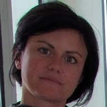
Ilaria Rosati
National Research Council (CNR), Research Institute on Terrestrial Ecosystems (IRET) Lecce, Italy
Ilaria Rosati obtained her PhD in Fundamental Ecology from the University of Salento (Italy) and she graduated in Biological Sciences at the University of Bologna (Italy). She has a background on biodiversity organisation, conservation and management in aquatic ecosystems. Currently, her research focus is on e-biodiversity and, in particular, she is working in the field of semantic technologies for scientific data management. Ilaria, as a member of the LifeWatch ERIC's working group on "Metadata, Controlled Vocabularies and Ontologies", is coordinating the implementation and curation of thesauri for the ecological domain; and she is also involved in the development of EcoPortal, a repository supporting the community in the creation, management, mapping and alignment of its semantic resources and subsequently also of its data in the ecological domain (http://ecoportal.lifewatch.eu/). Within LifeWatch ERIC and LifeWatch Italia, she is actively involved in the development of different metadata/data catalogues and related schemas. Ilaria co-organized the LifeWatch Italy Workshop "Thesauri & Semantics in the Ecological Domain" and LifeWatch ERIC Workshop "Ontology & Semantic Web for Research" and she was chair of special session "Semantics for Biodiversity" at ICEI 2018. As a member of the Research Data Alliance (RDA), Ilaria is involved in various groups: the InteroperAble Descriptions of Observable Property Terminology WG (I-ADOPT WG), the Metadata Standards Catalog WG and the Biodiversity Data Integration IG.
- Submit Expression of Interest Form to contribute your plankton-inspired artwork to the zooplankton exhibition.
- Session/Workshop Theme Proposal submission